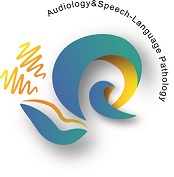The 2022 International Conference on Advanced Biomedical Sciences was held in the Conference Hall in Administration Building, Shuinan Campus, China Medical University. The world’s top academics came together to discuss the most significant and cutting-edge biomedical issues domestically and internationally, including signal transduction in cancer, cancer metabolism, induced multifunctional stem cells for cancer therapy, cancer immunity, cutting-edge technologies and translation, and novel cancer therapies. The International Conference on Advanced Biomedical Sciences was held for the first time last year and sparked a lot of discussion in the Taiwanese life science community, according to Mien-Chie Hung, President of China Medical University. This year, cancer medical studies remain the main focus. In recent years, Taiwan's biomedical research has gained unprecedented advances in both quality and quantity. The various areas of biomedical research do, however, have a number of connections and shared needs, so it is important to improve communication and integration between them. The key findings of Taiwanese research can be concretely presented through direct interaction and discussion with master scientists, allowing the rest of the world to see Taiwan’s accomplishments in the life sciences.
President Tsai further expressed that cancer has been among the top 10 causes of death for 40 years running, according to Taiwan’s Ministry of Health and Welfare's 2021 list of the top 10 killers. According to the World Health Organization, cancer is also the leading cause of death globally, accounting for almost 10 million deaths, about one-sixth of all deaths worldwide, in 2020 alone. Cancer prevention rates of 30 to 50% can be achieved by avoiding risk factors, i.e., through preventive measures that can be followed, and many cancers have a high chance of recovery if detected early and treated appropriately. According to President Tsai, Asia University's research team is using AI, machine learning, and biomedical data science to advance cancer-related research. A research team at Asia University utilized bioinformatics approaches to screen for gene mutation related to colorectal cancer. The mutations were then verified using samples from Taiwanese colorectal cancer patients. The identified genes APC, TP53, PIK3CA, and FAT4 were found in the bloodstream and could be used as ctDNA (Circulating tumor DNA) test targets for early cancer detection. Another team used a machine learning approach to perform gene set enrichment analysis (GSEA) and identified a 33-gene signature of Glioblastoma (GBM). The overexpressed GPX8 gene might play a crucial role in the tumorigenesis of different gliomas. President Tsai also shared with the world's top scholars at the conference that China Medical University and Asia University are ranked 265th and 384th, respectively, in the 2023 World University Rankings published by Times Higher Education. Both institutions of higher learning are dedicated to academic advancement, teaching, and research with the aim of leading society in a better direction |
||
 The photo is taken at the 2022 ICABS, where Asia University President Jeffrey J. P. Tsai (seventh from the right), China Medical University President Mien-Chie Hung (eighth from the right), and the participating experts from within the country and overseas were taking a group photo. |
||
 The photo is taken at the 2022 ICABS, where Asia University President Jeffrey J. P. Tsai (third from the right), China Medical University President Mien-Chie Hung (fourth from the right), and the participating experts from within the country and overseas were taking a group photo. |
President Jeffrey J. P. Tsai of Asia University Invited to Give an Opening Remark at the 2022 International Conference on Advanced Biomedical Sciences
Nobel Laureate, Top International Cancer Scholars, and Domestic and International Experts Gathered to Share Research Achievements

 Department of Audiology and Speech-Language Pathology, Asia University
Department of Audiology and Speech-Language Pathology, Asia University

